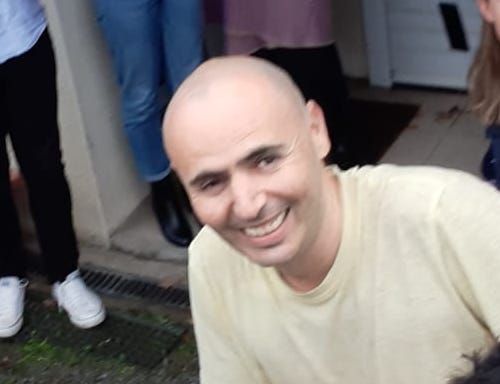Training the Trainer
An Erasmus Project on organizing youth exchanges
Contact us
Training the Trainer
It is with great pleasure that we’ve participated in a train the trainer course, which delved into:
- How to organize an Erasmus project from a technical standpoint
- How to bring young people together through games and other team-building activities
- Basic project management
- How to appreciate and deal with different styles of communication in people
Testimonials

Marco Montebello
“A fun way to learn how to bring people together through games and team-building exercises. Different styles of communication were discussed, which I found very useful to understand people different than me”
From Our Diary
Tuesday 22-11-2022
We had an ice breaker in the morn. We’re a great group, everyone emanates good energy.
Then we split into small groups and discussed how we can ameliorate what we do in our line of work. The following were the points that stood out: the importance of continuous improvement and that of knowing your audience, that of empowering ppl, letting them come up with their own ideas, having a people-oriented philosophy (putting people before outcome if needs be, being flexible where possible), and acting professionally, i.e. and abiding by the rules.
After the midday break, we had another ice breaker and we discussed different styles of communication (what’s known as the disc model). Following that, we trained voice projection for public speaking.
Then we split up into pairs and simulated a discussion involving anger, delving slightly into anger management skills.
Closing off, we were invited to split up in groups and to come up with our own dummy Erasmus project (without any budget and practical restraints for the time being, just the dream so to say). The outcome of the exercise shall be being delved into tomorrow.
Wednesday 23-11-22
We started with an exercise about self-awareness, how to be comfortable and non verbal messages. After we did an exercise to show the differences between formal, non-formal and informal education.
Following was an exercise to get to know each other better and find things we have in common. We continued the exercise by dicussing inclusion.
After we split into pairs to do an exercise about knowing ourselves. Each of answered questions about the environment, behaviour, competences, values, identity and mission.
Next we discussed the steps involved to create a project. Then we went through the stages of an erasmus plus project.
In the evening there was the intercultural night, it was very fun.
Thursday 24-11-22
We worked on a sample project following the empathise-define-ideate-prototype-test model. We were given some ideas of where to find ice-breakers / so-called energizer games. Finally, we filled did group meditation and filled out the evaluation form.
